Must Read – the Verification Handbook
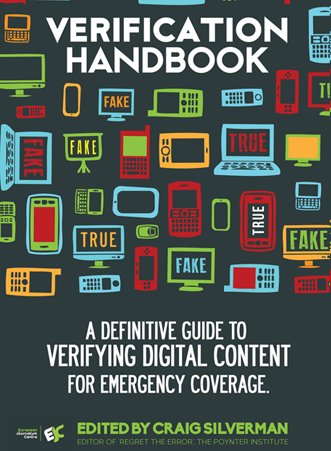
Social media networks are valuable sources of information but not everything that is posted, tweeted and uploaded is true. And under the pressure of breaking news, many journalists struggle to find ways of verifying the authenticity of pictures and videos on the Internet or establishing the credibility of those posting information. Luckily, help is at hand with the excellent (and free) Verification Handbook, published by the European Journalism Centre and available online.
Written by reporters and human rights researchers from leading organizations such as BBC, Storyful and Amnesty International, the Verification Handbook is jam-packed with practical information, tools and case studies. The handbook drives home why journalists need to be diligent about verifying user-generated content and also provides plenty of pointers on how news reporters can do this for themselves.
![]() read more
read more
Trainer recommendation: Mozilla Thimble
![]() If you’re looking for a simple way of introducing your online journalism trainees to the web’s Hyper Text Markup Language, better known by its acronym HTML, then consider the nifty little Mozilla Thimble editor – part of Mozilla’s suite of Webmaker tools.
If you’re looking for a simple way of introducing your online journalism trainees to the web’s Hyper Text Markup Language, better known by its acronym HTML, then consider the nifty little Mozilla Thimble editor – part of Mozilla’s suite of Webmaker tools.
![]() read more
read more
13 journalism blogs in English that you should know
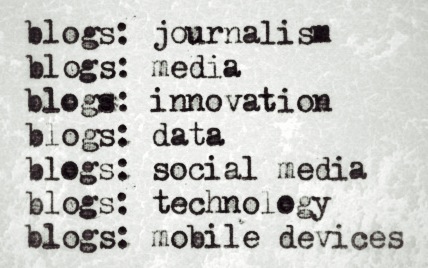 Few professions are changing as quickly as journalism.
Few professions are changing as quickly as journalism.
Gone are the days of simply typing up your story and submitting it for proofreading, or signing off from a program and disappearing into the ether.
With the ever increasing developments in multimedia and visual storytelling; data journalism and visualization; online security; finding sources on social media; and, publishing stories to different platforms, there’s only so much a humble textbook can keep pace of in modern journalism.
And while traditional text books (and eBooks) are important, as well as MOOC’s (massive open online courses), following blogs authored by big thinkers in journalism is a great way to learn essential skills, discover new trends and join the conversation on the future of our profession.
DW Akademie’s Natalia Karbasova has dived into the English speaking journalism blogosphere for onMedia and has surfaced with 13 blogs you should bookmark and read regularly.
![]() read more
read more
Trainer recommendation: Adapter & MPEG Streamclip
“What software can I use for converting and compressing files?”
It’s a question trainers are often asked on broadcast and multimedia courses involving a lot of work with audio and video files.
Adapter and MPEG Streamclip are a good starting point. Both are free and work on either a PC or a Mac.
These tools are particularly useful as video or audio Swiss Army knives – between them they can handle just about any sort of file and convert or compress it to whatever size or format you need.
And both tools let you create a batch list if you have a lot of files to convert or compress at the same time.
![]() read more
read more
Trainer recommendation: Writing for Broadcast Journalists
I usually take a couple of journalism text books with me on the road for training workshops. Depending on the topic, it might be a handbook on broadcast journalism or ethics or perhaps a technical guide for a camera. It’s good to have reference books to hand, but I also think it’s helpful to lend books to participants looking for more detailed information.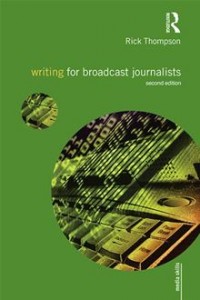
By far the book that is always most sought after, if I refer to it during a workshop, is Rick Thompson’s Writing for Broadcast Journalists (Routledge, 2010).
It’s an excellent reference book, especially for news writing and language.
Thompson has packed this very travel-friendly volume full of useful examples of news scripts and different writing techniques for radio and television. My much thumbed second edition also has a chapter on online journalism and social media.
![]() read more
read more
Trainer recommendation: Making a WiFi network with a little box
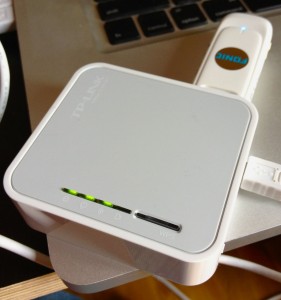 It’s the size of a Post-It note and makes a WiFi network using either a 3G mobile data SIM card or a local area network. Freelance trainer Guy Degen takes a look at the TP-Link 3G mobile wifi router – a useful bit of kit for journalists and journalism trainers on the road.
It’s the size of a Post-It note and makes a WiFi network using either a 3G mobile data SIM card or a local area network. Freelance trainer Guy Degen takes a look at the TP-Link 3G mobile wifi router – a useful bit of kit for journalists and journalism trainers on the road.
![]() read more
read more
Experience a German newsroom
Are you interested in gaining journalism work-experience? Or, getting a different perspective on stories and work-flows? How about doing work-experience in Germany? The International Journalists’ Programmes (IJP) might be an option.
The IJP offer bursaries for up to six young journalists from SADC-countries to work at a German media company. The placement is in either print, radio or television and the visiting African journalists will be integrated into the day-to-day newsroom working alongside German journalists. At the same time they’ll have the opportunity to research and produce stories for their home media. To cover expenses, bursary holders receive 3000 Euro from the IJP. Applicants need to speak good English – knowledge of the German language is an advantage but not mandatory.
![]() read more
read more




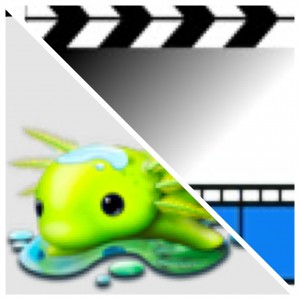
Feedback